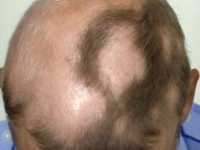
21 Jan Depression May Be a Driver of Alopecia Areata
MedicalResearch.com Interview with:

Dr. Vallerand
Isabelle Vallerand, PhD
Epidemiologist, MD Student
Department of Community Health Sciences
Cumming School of Medicine
University of Calgary
MedicalResearch.com: What is the background for this study? What are the main findings?
Response: It is well known that patients with alopecia areata, a form of autoimmune hair loss, are at a higher risk of suffering from depression than the general population. But in practice, we often hear patients tell us that they believe their hair loss developed as a result of stress or problems with mental health – certainly the phrase “so stressed your hair is falling out” is something most people have heard of. Despite this, there has actually been very little research investigating the role that mental health may have on development of alopecia areata.
Interestingly, depression has recently been associated with increased systemic inflammatory markers, so there is biologic plausibility that depression could increase the risk of alopecia areata. Our group was interested in addressing this question, and used a large population-level health records database with up to 26 years of follow-up to study it. We ultimately found that not only does depression increase one’s risk of alopecia areata, but that it increases their risk by nearly 90% compared to people who have never had depression. We also found that using antidepressants can significantly decrease the risk of developing alopecia areata in patients with depression. So there appears to be an important link between mental health and development of hair loss from alopecia areata.
MedicalResearch.com: What should readers take away from your report?
Response: Alopecia areata can have significant impacts on a patient’s mental health, but sometimes it seems as though mental health might actually be a driver in developing alopecia areata in the first place. This highlights that depression has a much greater role on the body and overall dermatological health than we previously thought.
MedicalResearch.com: What recommendations do you have for future research as a result of this work?
Response: Future research should aim to examine whether having depression alters the course of disease for people who already have alopecia areata. It will also be important to focus future research on a molecular level to identify the mechanism by which depression increases the risk of alopecia areata. Being able to identify these associations could lead to improved preventative efforts for dermatologic conditions.
We do not have any disclosures to declare.
Citation:
https://jamanetwork.com/journals/jamadermatology/article-abstract/2720311
[wysija_form id=”3″]
[last-modified]
The information on MedicalResearch.com is provided for educational purposes only, and is in no way intended to diagnose, cure, or treat any medical or other condition. Always seek the advice of your physician or other qualified health and ask your doctor any questions you may have regarding a medical condition. In addition to all other limitations and disclaimers in this agreement, service provider and its third party providers disclaim any liability or loss in connection with the content provided on this website.
Last Updated on January 21, 2019 by Marie Benz MD FAAD
